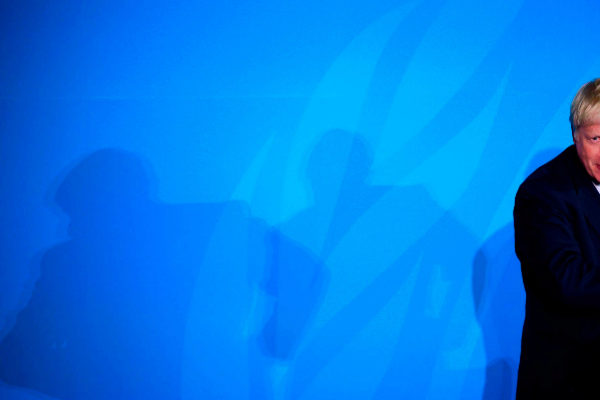- United Kingdom: The American 'friend' of Boris Johnson
- Opposition: Jeremy Corbyn saves his commitment to Brexit in extremis with the support of the Labor hard wing
The Supreme Court has ruled that the suspension of the British Parliament is "illegal" and that Boris Johnson abused his powers by ordering the "extension" of Westminster sessions for five weeks. Despite the judicial setback, the "premier" has indicated that he does not rule out canceling Parliament again until the Queen's traditional speech, scheduled for October 14.
The news surprised Johnson in New York, during the United Nations summit on climate change. The president of the House of Commons, John Bercow, had announced in advance his intention to reconvene Parliament sessions this week if the high court ruled against the Government.
The unanimous opinion of the eleven Supreme Judges threatens to unleash an unprecedented constitutional crisis between the Government and Parliament, and also calls into question Johnson's own role in requesting the express authorization of Queen Elizabeth II for temporary suspension from Westminster.
During the sessions at the Supreme Court, former Prime Minister John Major accused the conservative leader of "abuse of power" and ordered the closure of Parliament - after six consecutive defeats - with clearly political ends to avoid obstacles to his Brexit plans. Scottish lawyer Adian ONeill came to accuse Johnson of being "the father of lies against the mother of Parliaments."
While passing through New York, Johnson denied that the judicial setback could make his position unsustainable and that he could even force his resignation. "The reasons for having a Queen's Speech and presenting my government program are extremely good," he said.
The panel of 11 judges had to pronounce simultaneously in the appeal process of two judicial decisions: one in England and Wales (in favor of the Government) and another in Scotland (which described Johnson's decision as "illegal"). The proceedings began immediately after the suspension of parliamentary sessions at dawn on September 9-10, in the middle of
scenes of chaos and protests of the deputies of the Labor opposition, who exhibited posters where it could be read: "Silenced".
The "parliamentary extension" is a procedure that has been used occasionally throughout the last century to force a new session. Usually, during the annual conferences of the political parties in September, the Parliament operates on medium gas or temporarily suspends its sessions.
The excessively long suspension of five weeks, in the final stretch of Brexit scheduled for October 31, caused a shower of accusations against the conservative leader. "Boris Johnson behaves like one of those socialist dictators who says he hates," said liberal-democratic leader Jo Swinson. His detractors compared the decision of the conservative "premier" with that of Carlos I, who suspended Parliament in 1628 and ended up ordering the imprisonment of parliamentarians to be able to reign directly and without interference for eleven years, in the prelude to the English civil war.
According to the criteria of The Trust Project
Know more- Boris johnson
- Brexit
United Kingdom Scottish Justice agrees with Boris Johnson with the suspension of the British Parliament
United KingdomThe British Parliament says 'No' to the Boris Johnson elections
United Kingdom The British Justice rejects the lawsuit against the suspension of Parliament

